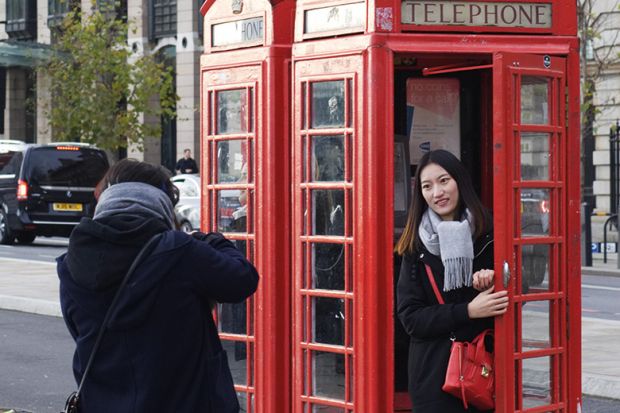Economic impact. Do these words cause your heart to pound and blood to rush to your head?
Probably not. But that hasn’t stopped economic impact reports becoming one of the main lobbying tools of recent years – not least in higher education, where barely a week goes by without a new calculation of the value that universities add to our collective prosperity.
Higher education is not alone in this. The campaign for Britain to remain in the European Union was very heavily focused on the impact that leaving would have on the national economy – a tactic that manifestly failed to have the desired impact on voters.
So it’s probably best to see these measurements as one tool among many when restating the case for international students to be removed from net migration figures, rather than the whole combine harvester.
But with that caveat, the findings of a report published by the Higher Education Policy Institute this week do significantly sharpen the argument that many in UK universities feel has been won many times over, albeit without changing the mind of the Home Office or the prime minister.
What’s new is that Hepi’s report does not measure only the economic contribution of overseas students, but – for the first time – the costs of hosting 438,000 of them, right down to their share of defence spending on nuclear submarines (which would be patrolling the Channel regardless).
This matters because the government has been making lazy assumptions about international students for far too long.
An example of this is the assertion made over many years about the number overstaying their visas – frequently referred to as 100,000, but now shown to be a fraction of that.
This politically expedient sloppiness is also illustrated by a recollection from Hepi director Nick Hillman from his time in government. As special adviser to Lord Willetts when he was universities minister, Hillman recalls meeting with the immigration minister, then Damian Green, who was due to give a speech at the Policy Exchange thinktank. International students, Green confidently asserted in his draft, cost the country at least as much as they contributed.
Where did you get the evidence for that, Green was asked? Well, there are loads of them – they fill up our schools and hospitals and use our roads, came the reply from the minister and his officials. The fact that they are at university rather than school, tend to be young and healthy and rarely drive was a pretty obvious rebuttal – but ultimately there were no data to back it up.
Another point to make is that, whereas in many countries – Germany, for instance – responsibility for immigration is shared across departments, in the UK it sits solely with the Home Office, which is interested only in the cost to government – not the contribution to the country.
For these reasons, nailing down a net figure, as the Hepi report does, is crucially important, to add fuel to the fire that will be stoked by the Migration Advisory Committee review currently under way.
The other new data in this report illustrate the extent to which the economic impact is spread across the whole country, albeit primarily in towns and cities. This is not a financial boost that is solely focused on London. It is countrywide, with university locations in Brexit heartlands just as likely to be benefiting as prosperous, Remain-voting areas in the South East.
It is looking increasingly likely that the argument over international students will, ultimately, be won, with a rash of press reports suggesting that the prime minister has neither the support of her colleagues nor the parliamentary numbers to stand firm on the net migration count much longer.
If it is, then it must be the case that the many other reasons for wanting these bright stars of the future to spend time in Britain, to form friendships with the country’s own students and enrich their lives and learning, will be just as important as the financial gain here and now.
But this Hepi study, and the work done by the MAC over the coming months, will be crucial pieces in the jigsaw. So find a place in your heart for one more economic impact report – and let’s hope it has the desired impact in this sorry saga.
Register to continue
Why register?
- Registration is free and only takes a moment
- Once registered, you can read 3 articles a month
- Sign up for our newsletter
Subscribe
Or subscribe for unlimited access to:
- Unlimited access to news, views, insights & reviews
- Digital editions
- Digital access to THE’s university and college rankings analysis
Already registered or a current subscriber? Login





